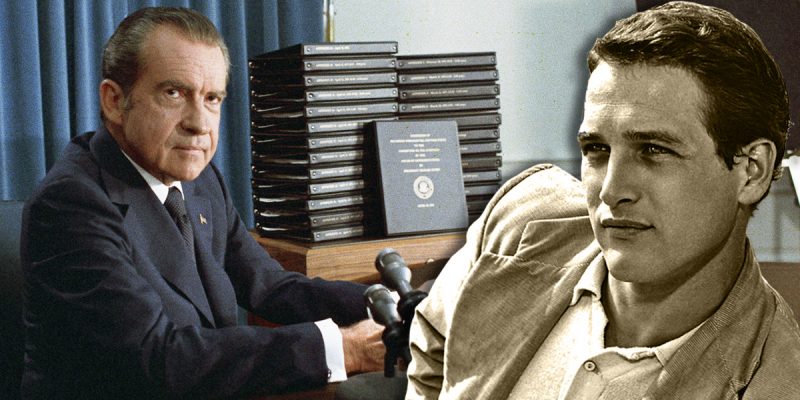How did a celebrated actor find himself on a list of enemies assembled by none other than President Richard Nixon? The answer to this question lies in an anecdote involving Paul Newman, Richard Nixon, and a certain Jaguar automobile.
During the presidential elections of 1968, the political climate in the country was reaching a boiling point. The public was highly polarized on the Vietnam War, where American soldiers had been fighting for years.
Paul Newman, like so many celebrities of the era, was actively against the war, and sported a liberal stand on other issues as well, like the promotion of gay rights and the complete banning of nuclear weapons. In the 1968 election, he supported the Democratic nominee Hubert Humphrey and had endorsed Eugene McCarthy and his anti-Vietnam War campaign.
On one occasion, fate played a trick on these two very different public figures. As it is noted in the actor’s biography written by Marian Edelman Borden, Newman was at the time a friend of a car dealer who was the official distributor of the famous British automobile brand: Jaguar.
Since the actor was a well-known car enthusiast, it was in the dealer’s best interest to loan him the car of his choice, for the star was worth good value in marketing power. Newman used the automobile three days a week, from Friday to Sunday.
It was a great surprise to Newman when he discovered that none other than the presidential candidate Richard Nixon drove the car on Tuesdays and Wednesdays. Once he learned that the car dealer was, in fact, renting the same Jaguar to him and to the would-be president, Newman came up with a joke, just to let his counterpart know who he was sharing the steering wheel with.
The actor left a note that stated:
Dear Mr. Nixon,
You should have no trouble driving this car. It has a tricky clutch.
Paul Newman
The “tricky” part was what infuriated Nixon, for it was a clear reference to the nickname a rival candidate gave him years earlier and the press picked up on: “Tricky Dick.” The name insinuated that the presidential candidate was no stranger to using underhand or deceptive methods in his political campaigns.
Once he found the note, Nixon apparently held a grudge against the actor turned prankster. So serious that in 1971, when he assembled a list of “enemies” of major political opponents, he included Paul Newman, placing him 19th on a list of 20 names. Later, during the Watergate scandal, the list came to light.
Newman was squeezed between S. Harrison “Sonny” Dogole, president of the Globe Security Systems, a private detective agency, and Mary McGrory, a journalist and a fierce opponent of the Vietnam War. When the actor learned of this, he couldn’t be more proud. On several occasions, he mentioned that getting on that list was his biggest life achievement.
He came into possession of the document that proved his name was, indeed, on the notorious list and decided to frame it and display it in his home in Westport, Connecticut.
In his biography, Newman’s pleasure with the list was explained:
A man with no enemies is a man of no character.
On the list there was also a written explanation, presumably from Nixon, of why Newman had the 19th spot: Radical lib causes. Heavy McCarthy involvement in ’68. Used effectively in nationwide T.V. commercials. ’72 involvement certain.
Even though Newman was one of the greatest stars ever to come out of Hollywood, he always deemed his political activism and philanthropy as the things that mattered most. He remained loyal to his politically progressive ideas for the rest of his life, and his charity foundations managed to raise numerous funds for causes he cared about.
